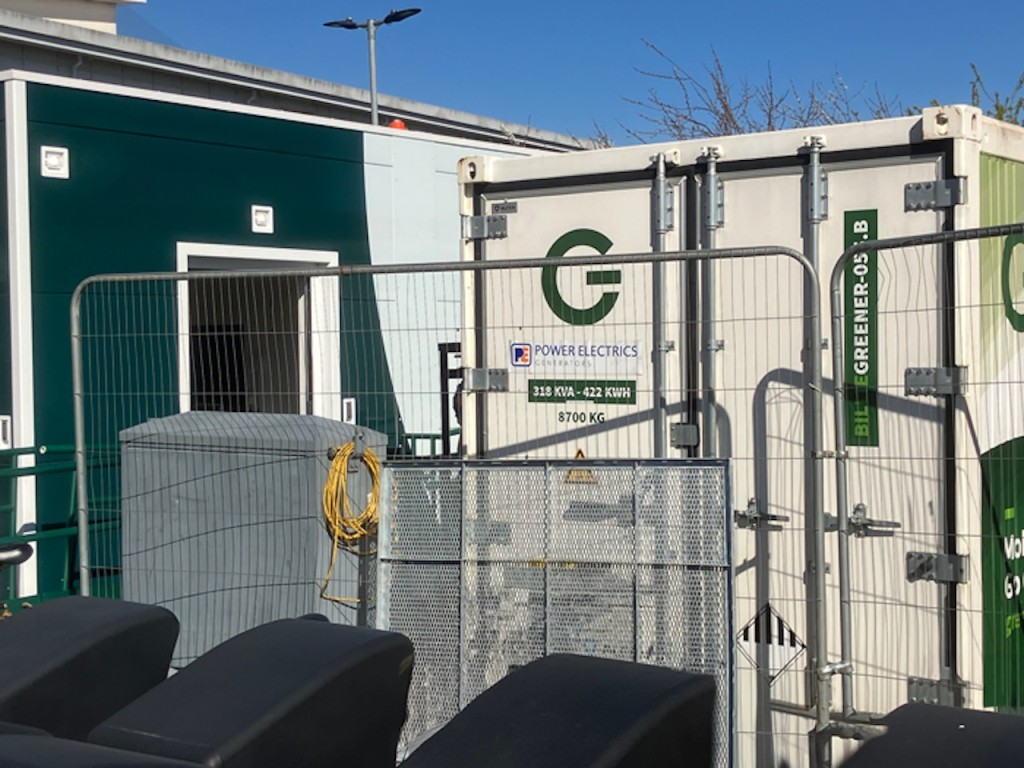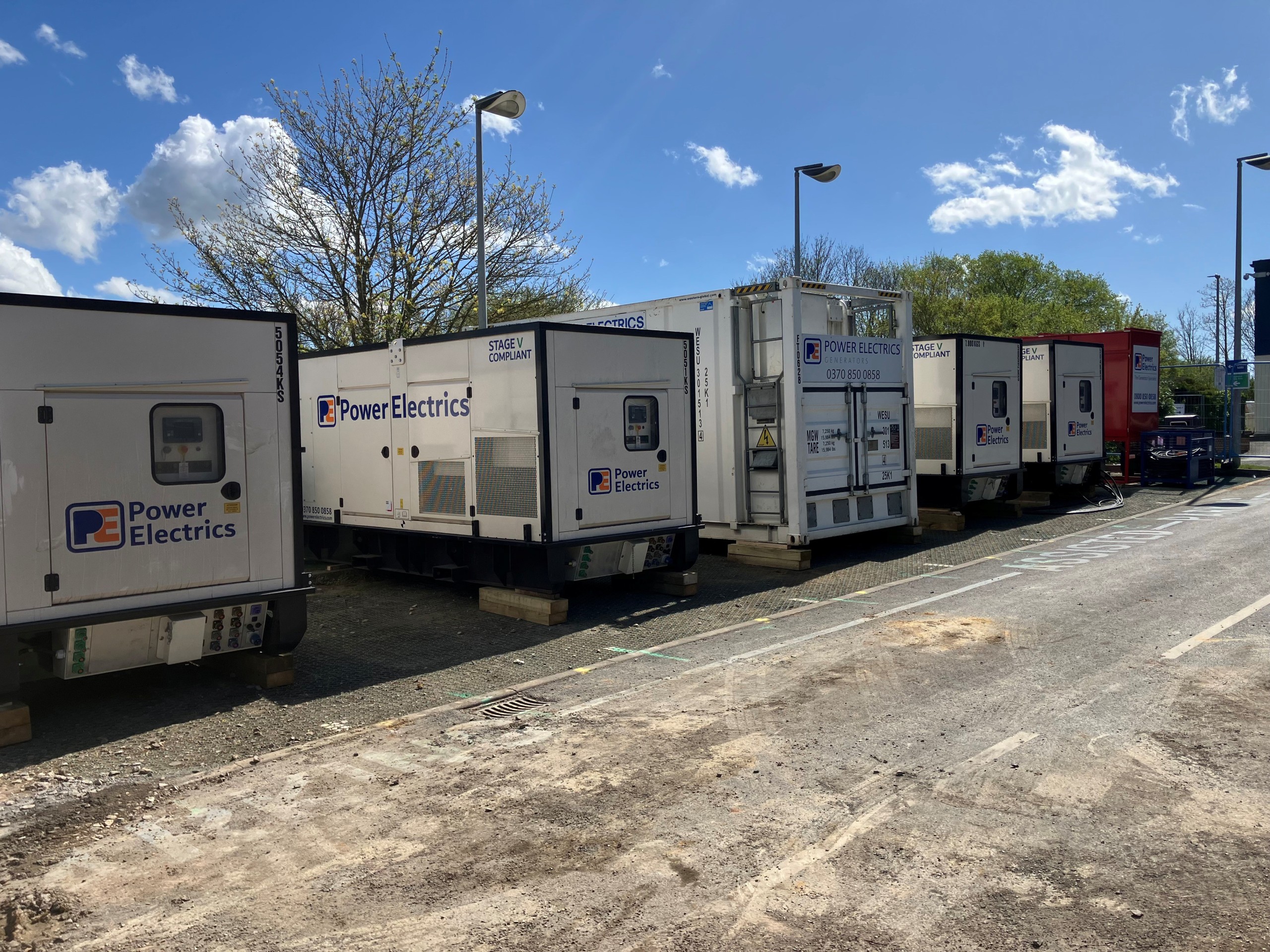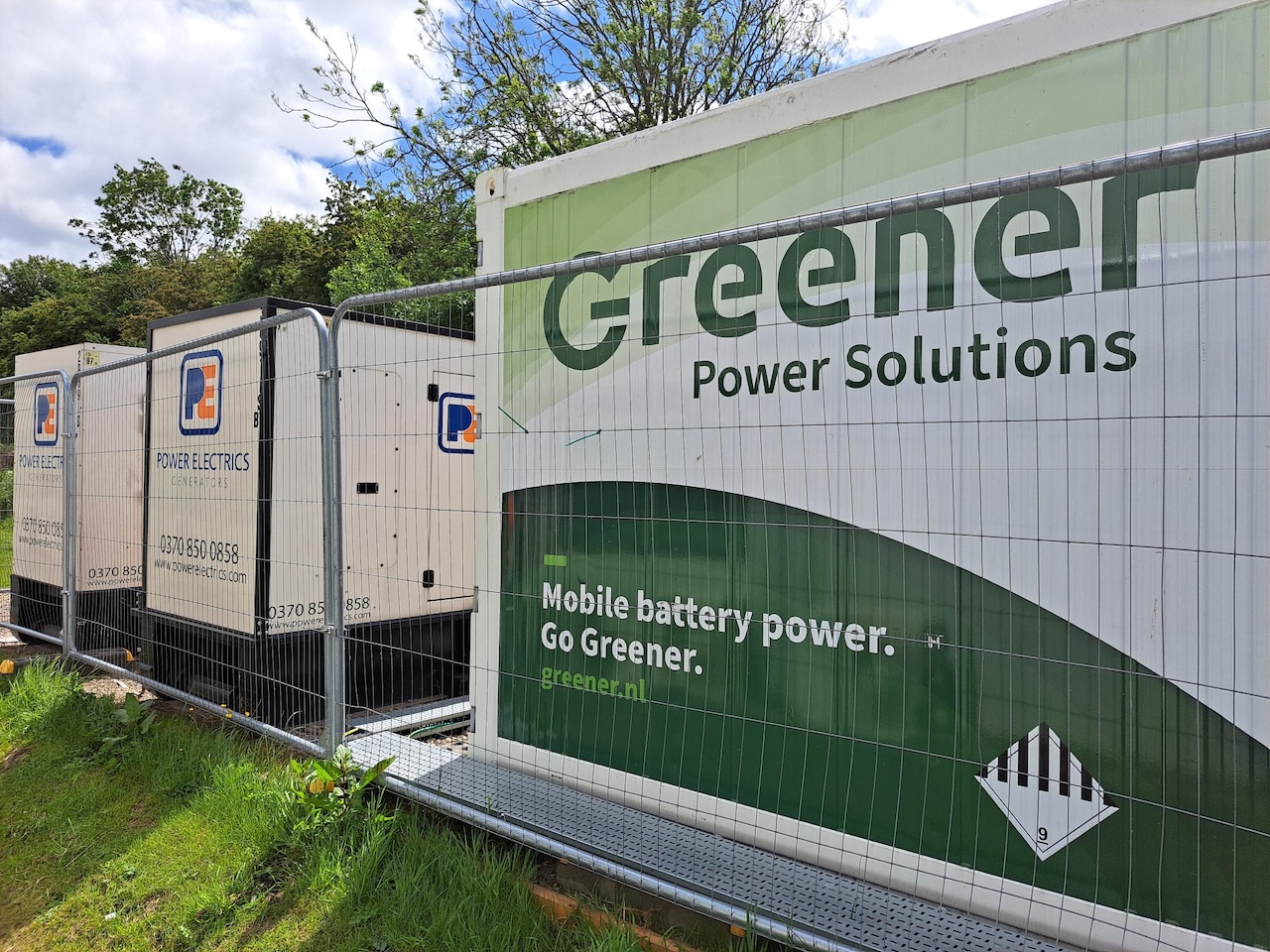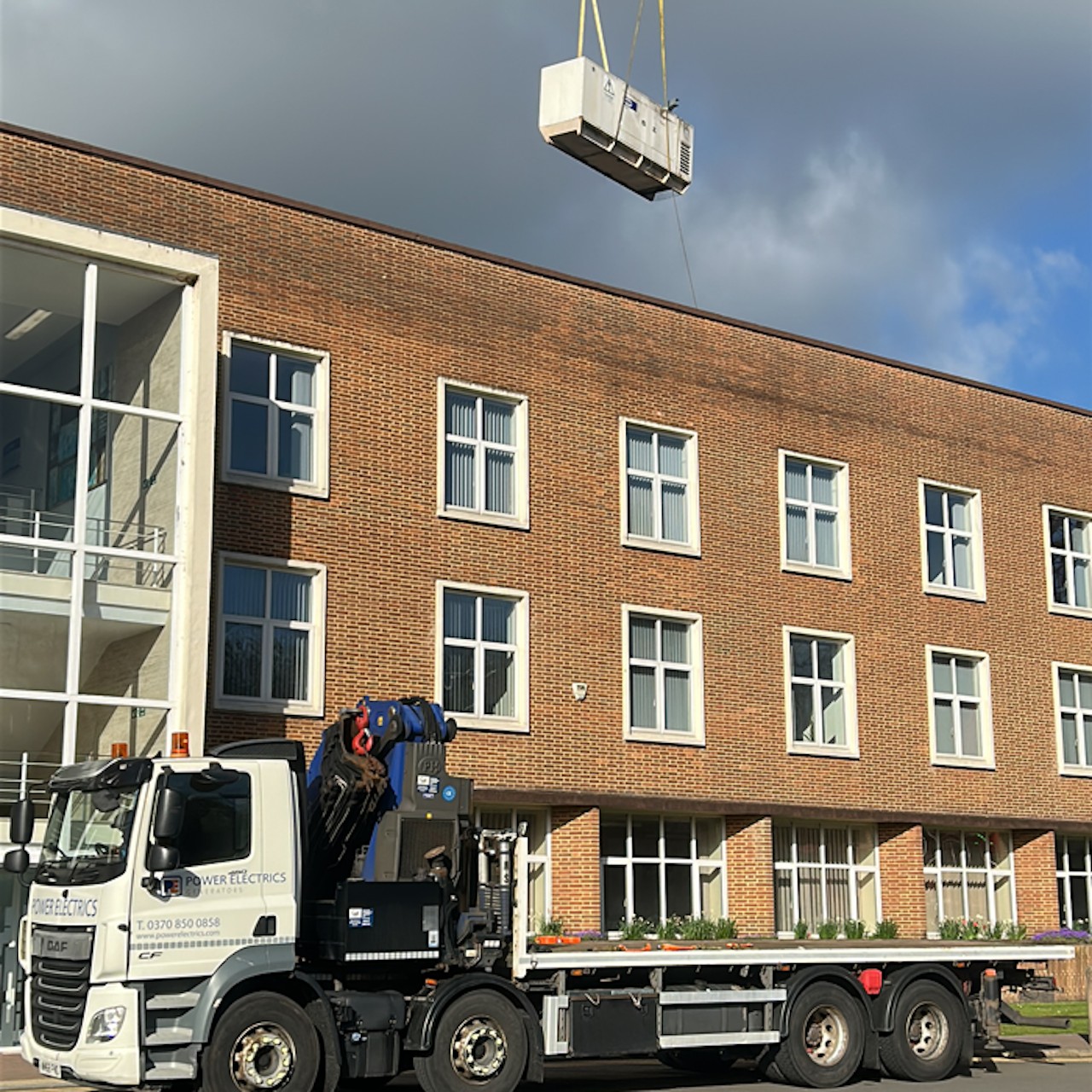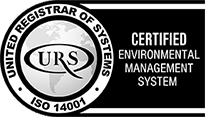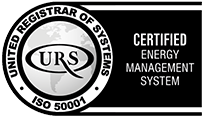A long-standing customer in the medical sector planned a new site setup including two mobile scanners and a treatment support unit, which would traditionally require a minimum of 500 kVA in power. The industry standard typically calls for a 300 kVA generator per scanner, meaning diesel generation was expected as the default solution.
However, Power Electrics with the help of our partner Greener Power Solutions, proposed and successfully implemented a cleaner, more innovative approach: Completely eliminate diesel generation and supply the site’s high power demands through a combination of Battery Energy Storage Systems (BESS) and a modest grid connection.
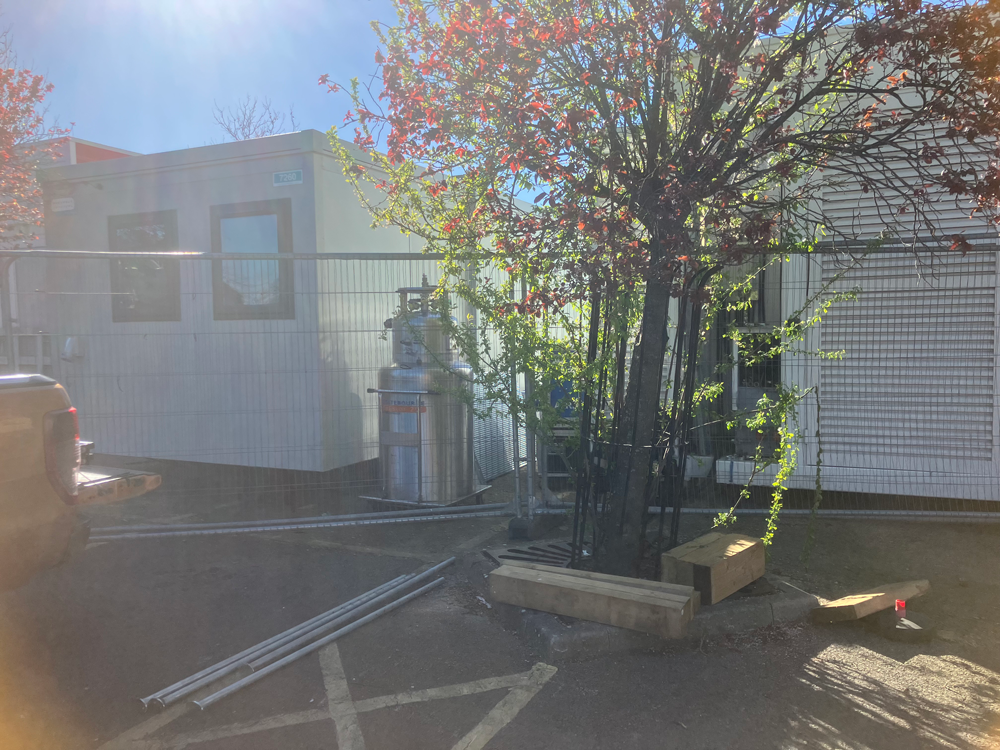
The Challenge
The expected setup would have required at least 500 kVA of diesel power, following conventional industry practice.
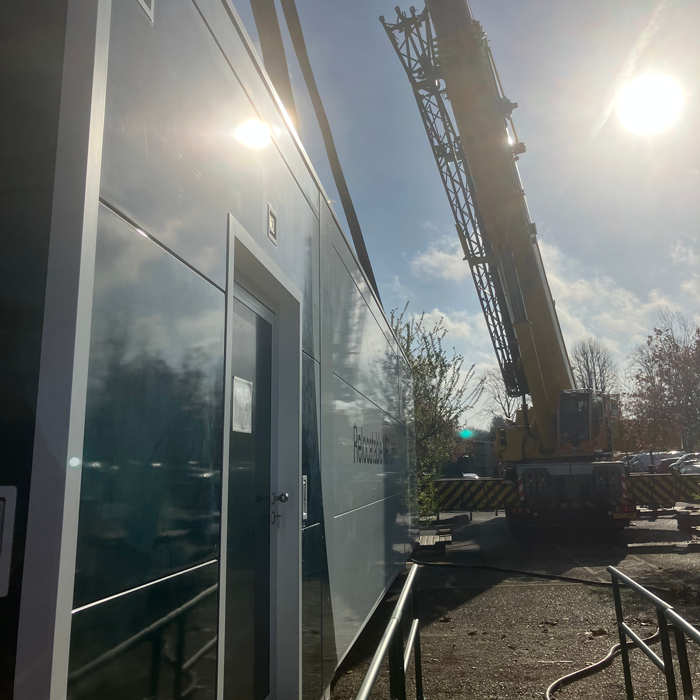
The existing site’s grid connection was limited to a 100A three-phase supply, seemingly too small to support two scanners and auxiliary units. Traditional thinking would have required significant upgrades or temporary diesel generation, incurring cost, emissions, and logistical challenges.
The Solution:
Power Electrics challenged the industry norm with a bold and innovative approach: remove diesel generation entirely.
Drawing on in-depth performance data from previous installations with the same customer, in partnership with Greener Power Solutions, we designed a fully diesel-free power solution using a Battery Energy Storage System (BESS) paired with the site’s existing 100A three-phase grid supply. Instead of relying on oversized generators, the system was engineered to peak shave–charging during low-demand periods and seamlessly discharging during power spikes, such as those from the scanners.
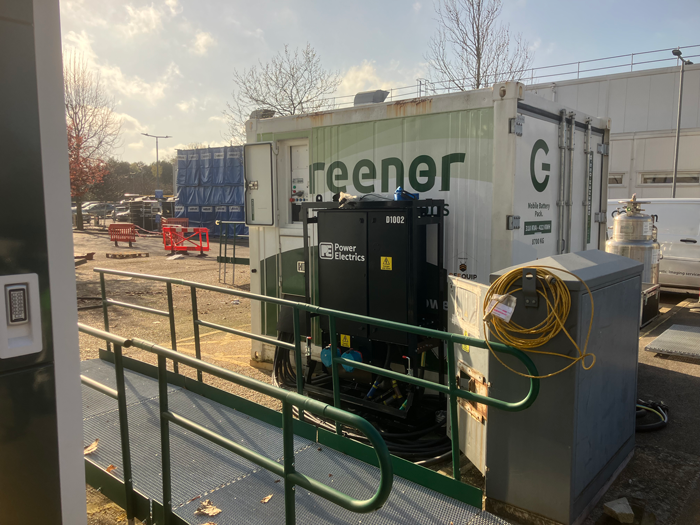
But the real game-changer came through continued monitoring and optimisation. We discovered the entire system could reliably operate on just a 50A three-phase grid supply, with the battery discharging safely to around 45-50% state of charge (SoC) – without any compromise to performance or uptime. This breakthrough dramatically reduced infrastructure requirements, eliminated the need for diesel generation, and cut out fuel storage entirely.
What was once considered impossible, powering a dual-scanner site without a generator – became a new benchmark for clean, smart energy delivery in the medical sector.
With the custom in house built DB panel & the ability to not have the expected 500Kva generator running 24/7, this is a game changer and proves that such setups can be run from small 50Amp 3 phase supplies which will have a massive impact on NHS setups – with a massive saving and also making mobilisation of such projects days rather than weeks.
Rob Mason, Project & Solutions Manager
Rob Mason, Project & Solutions Manager at Power Electrics
The project threw many challenges at us from the word go, and the speed of growth was also a challenge. When it moved onto doubling the amount of Medical scanners on site it seemed bigger generators would be the only choice. After a detailed study of the site it was found that the site had a small grid supply.
With careful study of the load profiles, a good understanding of the throughput of patients it became clear that not only could we run multiple scanners and treatment rooms but we could do it at much lower current levels.
With the custom in house built DB panel & the ability to not have the expected 500Kva generator running 24/7, this is a game changer and proves that such setups can be run from small 50Amp 3 phase supplies which will have a massive impact on NHS setups – with a massive saving and also making mobilisation of such projects days rather than weeks.
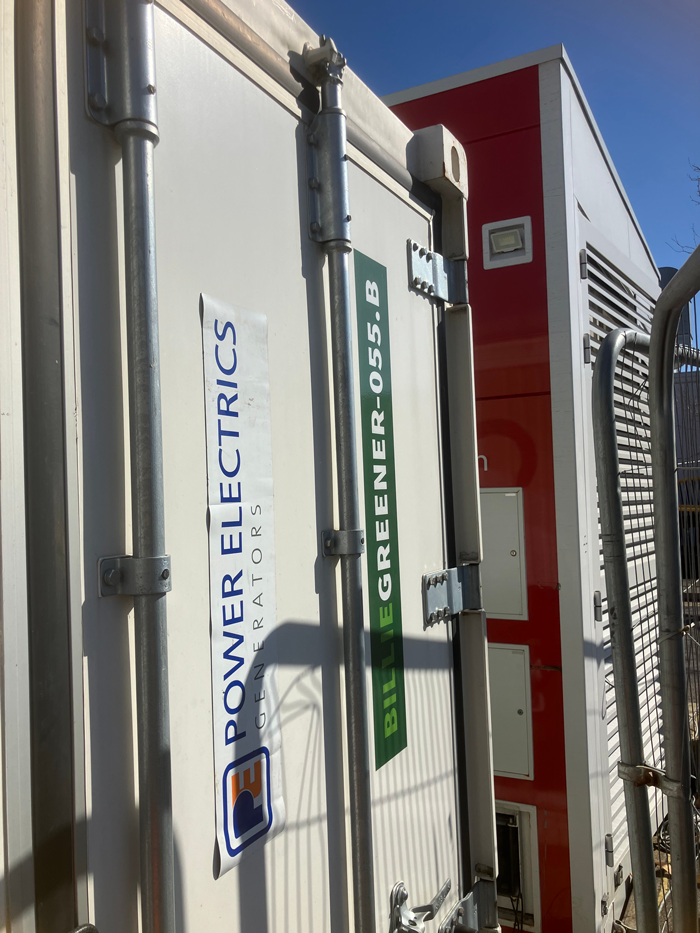
The Results
This project marks a major shift in power provision for high-draw medical applications. By eliminating the generator and relying solely on a battery-supported grid supply, the site saved over 62,524 litres of diesel. With the hospital’s power infrastructure already supported by dual-feed HV systems and on-site generators, the solution ensured zero site emissions, improved cost-efficiency, and reduced environmental impact.
- The solution reduced generator hours by 6205
- 202 tonnes of CO2 saved
- 968kg of NOx saved
Power Electrics not only delivered a smarter solution but also demonstrated how battery energy storage can redefine what’s possible in temporary and mobile power for critical industries.
Power Electrics – We Bring the Energy! (and keep it in a box for you).
